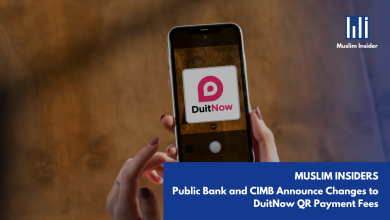
Muslims only consume foods that are Halal, which aligns with Islamic law, which is rooted in the Quran and Hadith. Consuming halal food is mandatory for Muslims, as it is a direct instruction in Islam. The Quran explicitly commands Muslims to eat what is halal and tayyib (pure or wholesome) and to avoid haram (forbidden) foods.
Interestingly, Halal foods are now also attracting non-Muslim consumers. Many are drawn to Halal products for their reputation for cleanliness, safety, and ethical standards. This broader interest is driving significant growth in the Halal food market, with rising demand from both Muslim and non-Muslim consumers.
By 2031, the Halal food market is expected to reach USD 5.91 billion, with an anticipated growth rate of 12.1% annually from 2024 to 2031. Businesses are also adopting Halal practices because this certification offers them a handful of benefits in the market.
Recent research shows that 100 Muslim respondents from Klang Valley are increasingly willing to purchase Halal-certified products, even when produced by non-Muslim manufacturers. This suggests a growing market potential for non-Muslim businesses that commit to strict Halal practices.
Results showed a predominantly female group of respondents, with a majority aged between 31 and 40 years, followed by younger and older age groups. Most respondents were married, and the majority had tertiary education. Occupation-wise, non-professional workers were the largest group, with professionals, students, and self-employed individuals also represented.
Key Findings
- Muslim consumers in Klang Valley show a strong interest in buying Halal packaged food, even from non-Muslim manufacturers. However, their intention to actually purchase Halal products from non-Muslims is less certain, with only a few respondents agreeing.
- Halal awareness is a key factor in purchase decisions, with many respondents prioritizing food safety and hygiene. Most are aware of how food is processed and whether it meets Halal standards, but only a few are concerned about the country of origin of Halal food.
- Islamic branding helps build trust, with most consumers preferring well-known Islamic brands. However, some are also willing to buy from unfamiliar brands as long as the product is clearly Halal-certified.
- Product ingredients matter, with consumers seeking clear, understandable labels and familiar ingredients to ensure the product is Halal. Complex ingredients, however, can cause confusion and raise concerns about the product’s Halal status.
- While there is interest in Halal packaged food, some consumers are still unsure about purchasing from non-Muslim manufacturers, even when the product is Halal certified.
What drives Muslim consumers to purchase products?
The challenge for non-Muslim businesses lies in gaining the trust of Muslim consumers. While interest in Halal products is on the rise, many consumers remain hesitant to purchase from non-Muslim brands, even if the product is Halal-certified.
This hesitation arises because interest reflects curiosity, openness, or a generally positive view of a product, whereas intention signals a readiness to make an actual purchase. However, Muslim consumers are still willing to buy Halal-certified products, even if they come from unfamiliar brands, provided certain conditions are met.
For non-Muslim businesses to successfully attract Muslim consumers and convert their interest into actual purchases, it’s essential to:
- Obtain Halal certification to establish trust and credibility.
- Clearly display the Halal logo on the packaging.
- Ensure that product ingredients are clearly listed and easy to understand.
The research highlighted that Halal awareness and clear product ingredients are key factors in Muslim consumers’ decision to buy. The study found that when consumers know the ingredients and are sure the food is Halal, they are more likely to buy it. Respondents also cared about the safety and quality of the ingredients, which is important for ensuring the overall trustworthiness of Halal packaged food.
By offering transparency and clear communication, businesses can build trust among both Muslim and non-Muslim consumers. Companies that meet these criteria are more likely to convert interest into actual sales, as consumers feel more confident in their purchase decisions.
Conclusion
Muslim consumers are becoming more willing to buy Halal-certified food from non-Muslim companies. This study offers valuable insights for non-Muslim manufacturers seeking to enter the Halal food market.
Although some consumers may hesitate to buy from unfamiliar brands, displaying a clear Halal certification and labeling ingredients transparently can build trust and encourage purchases. As the Halal food market grows, non-Muslim companies that prioritize these factors can attract a wider range of customers and benefit from the rising demand for Halal products.




